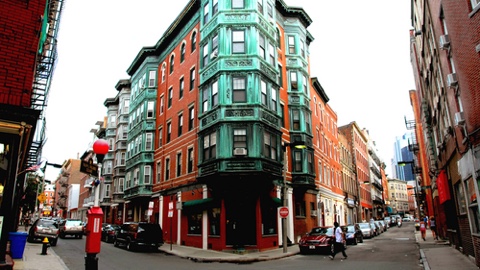
Boston has launched its Smart Cities pilot project with the installation of road sensors, cameras, and connected lighting at the intersection of two major thoroughfares. Installed by Verizon, it is being termed a hyper-instrumented intersection. Forty or more sensors are installed at the site, plus multiple cameras, a lighting control solution, and broadband connectivity.
One type of sensor being installed is a magnetometer and micro radar devices will use Zigbee – the wireless language that devices use to connect to one another – to communicate to nearby traffic cabinets. The traffic cabinets, meanwhile, have their own cellular wireless connections that link to the internet and will be used to transfer sensor information from the location to a centralized database.
Verizon’s Intelligent Video solution uses mounted cameras, a connectivity cabinet, and both client and cloud-based software. Video recorded by the cameras will be streamed to the cabinet, which can be stored locally and analyzed on site. When the system recognizes a change in normal traffic patterns it then will stream the relevant footage to the cloud for further study.
The smart road system looks at how vehicles and cyclists move, vehicles staying in the intersection for long periods of time, pedestrian activity, and cyclists’ use of bike lanes. The data collected will be analyzed in an attempt to increase safety, measure bicycle traffic, improve public transit vehicle flow, and decrease congestion. With this high-tech data, it is hoped that the city will know what changes are needed – better streets, sidewalks, or signage, changes to how it enforce traffic rules, or more in depth public education.


